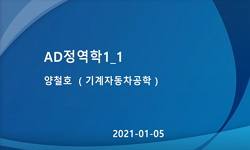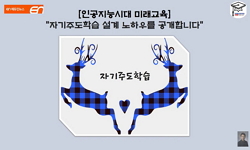This study is to investigate the impact of ‘u-classroom’(a classroom enhanced by ubiquitous computing technology) on teaching and learning practices. Currently, ‘u-classroom’ projects are being done by MOE and Provincial Educational Bureau, wh...
http://chineseinput.net/에서 pinyin(병음)방식으로 중국어를 변환할 수 있습니다.
변환된 중국어를 복사하여 사용하시면 됩니다.
- 中文 을 입력하시려면 zhongwen을 입력하시고 space를누르시면됩니다.
- 北京 을 입력하시려면 beijing을 입력하시고 space를 누르시면 됩니다.

초등학교 ‘유러닝교실’에서 교수학습실천의 변화와 문제점 = The impact of technology-enhanced classrooms on teaching and learning practices
한글로보기https://www.riss.kr/link?id=A82490904
- 저자
- 발행기관
- 학술지명
- 권호사항
-
발행연도
2010
-
작성언어
Korean
- 주제어
-
KDC
370
-
등재정보
KCI등재
-
자료형태
학술저널
- 발행기관 URL
-
수록면
237-259(23쪽)
-
KCI 피인용횟수
4
- DOI식별코드
- 제공처
-
0
상세조회 -
0
다운로드
부가정보
다국어 초록 (Multilingual Abstract)
This study is to investigate the impact of ‘u-classroom’(a classroom enhanced by ubiquitous computing technology) on teaching and learning practices. Currently, ‘u-classroom’ projects are being done by MOE and Provincial Educational Bureau, which purposes are to understand the future classroom and to develop the prototype of technology-enhanced classroom environments. Up to now, many studies focus on the satisfaction degree and academic achievement, but researchers hardly inquire the actual process of teaching and learning in the classroom and what is really going on in this ‘adventurous’ classrooms. This study compares the ‘u-classroom’ with traditional classrooms in terms of teaching practices, learning process, classroom's social and psychological environment, and students' self-directed learning. The survey method was used to collect data from students in six classrooms(3 u-classrooms, 3 traditional classrooms). The T-test was used to identify the statistical significance of the differences. The results show that the teaching practices and learning processes of u-classroom were more constructivist than traditional classrooms, but students' learning skills and SDL were not meaningful compared to those of the traditional classrooms. The issues and implications of the results were also discussed.
국문 초록 (Abstract)
본 연구는 그동안 교육과학기술부와 시도교육청에 의해 활발하게 진행되어 온 미래형 교실(‘유러닝교실’) 구축 사업과 관련하여 과연 이들 교실에서 기대한 바와 같은 변화가 일어나고 ...
본 연구는 그동안 교육과학기술부와 시도교육청에 의해 활발하게 진행되어 온 미래형 교실(‘유러닝교실’) 구축 사업과 관련하여 과연 이들 교실에서 기대한 바와 같은 변화가 일어나고 있는지를 교수-학습활동 측면에서 검토하였다. 정부가 추진하고 있는 ‘유러닝교실’ 사업은 ICT기술을 활용하여 교수-학습의 혁신을 꾀하고자 하는 목적으로 추진되고 있다. 현재 교과부, 시도교육청 차원에서 다양한 이름으로 ‘유러닝교실’이 구축되고 있다. 그러나 이들 교실에서의 교수-학습 실천이 어떤 방식으로 진행되며 일반 교실과 어떤 차이가 있는지에 대해서는 연구학교 보고서나 단편적인 연구에서 엿볼 수 있을 뿐이다. 이에 본 연구에서는 ‘유러닝교실’에서 교사와 학습자의 실천방식이 어떤 변화를 보이는지, 학생들의 자기주도적학습능력에서 어떤 변화가 있는지를 살펴보았다. 연구를 위하여 ‘유러닝교실’ 활동이 활발한 3개 초등학교와 그렇지 않은 3개 초등학교를 선정하여 설문조사를 실시하였다. 조사 결과 ‘유러닝교실’은 교수-학습행위 실천과 교실 분위기에 대한 인식에 있어서 일반교실에 비해 차이를 보이는 것으로 나타났다. 이 중에서 특히 교실에서 교수자의 행위에 대한 학습자의 인식이 일반교실에 비해 매우 긍정적인 것으로 나타났으며, 교실 분위기 면에서 협력적, 안정적, 허용적 분위기가 조성되는 것으로 학습자들이 인식하였다. 그렇지만, 학습자 자신에 대한 성찰 면에서 목표지향성이나 자기주도적 학습능력 등은 ‘유러닝교실’에 의해 유의미하게 영향을 받지 않는 것으로 나타났다. 본 연구에서는 이들 결과에 기초하여 초등학교 ‘유러닝교실’에서 교수-학습 실천양식의 변화와 문제점을 종합적으로 논의하였다.
참고문헌 (Reference)
1 박인우, "학교교육에 있어서 구성주의 원리의 실현 매체로서의 인터넷 고찰, in 교육공학 연구의 최근 동향" 교육과학사 1998
2 박인우, "테크놀로지 기반 미래학교 연구" 2009
3 박인우, "유비쿼터스 환경을 지향하는 미래교실 구성방안" 한국교육학술 정보원 2006
4 임병노, "유비쿼터스 기반 선진교실의 효과성 검증 및 개선방안 연구" 한국교육학술정보원 2008
5 임병노, "유러닝교실의 실태와 개선방안" 16 (16): 78-85, 2009
6 전효선, "국내외 교실 학습연구(I)" 한국교육과정평가원 2007
7 권성호, "u-러닝 효과성 분석 연구" 한국교육학술정보원 2006
8 한선관, "u-러닝 효과성 분석 및 u-러닝 운영 모델 개발 연구" 한국교육학술정보연구원 2007
9 Means, B., "Using technology to support education reform. (Office of Educational Research and Improvement)" Department of Education 1993
10 Taylor, R., "The computer in the school: Tutor, tool, tutee" Teachers College 1980
1 박인우, "학교교육에 있어서 구성주의 원리의 실현 매체로서의 인터넷 고찰, in 교육공학 연구의 최근 동향" 교육과학사 1998
2 박인우, "테크놀로지 기반 미래학교 연구" 2009
3 박인우, "유비쿼터스 환경을 지향하는 미래교실 구성방안" 한국교육학술 정보원 2006
4 임병노, "유비쿼터스 기반 선진교실의 효과성 검증 및 개선방안 연구" 한국교육학술정보원 2008
5 임병노, "유러닝교실의 실태와 개선방안" 16 (16): 78-85, 2009
6 전효선, "국내외 교실 학습연구(I)" 한국교육과정평가원 2007
7 권성호, "u-러닝 효과성 분석 연구" 한국교육학술정보원 2006
8 한선관, "u-러닝 효과성 분석 및 u-러닝 운영 모델 개발 연구" 한국교육학술정보연구원 2007
9 Means, B., "Using technology to support education reform. (Office of Educational Research and Improvement)" Department of Education 1993
10 Taylor, R., "The computer in the school: Tutor, tool, tutee" Teachers College 1980
11 "The CEO Forum school technology and readiness report: Key building blocks for student achievement in the 21st century" 2001
12 Baker, E., "The Apple classrooms of tomorrow: 1990 UCLA evaluation study" UCLA Center for the Study of Evaluation 1990
13 Sandholtz, J., "Teaching with technology:creating student-centered classrooms" Teachers College Press 1997
14 Kratcoski, A., "Teaching and Learning in a Ubiquitous Computing Environment" 2 (2): 17-45, 2006
15 Means, B., "Teaching advanced skills to at-risk students:views from research and practice" Jossey Bass Publishers 1991
16 Becker, H. J., "Teacher professional engagement and constructive-compatible computer usage" Irvine, CA: Teaching, Learning, and Computing 2000
17 Takahata, M., "Sound Feedback for Powerful Karate Training" 2004
18 Bork, A., "Personal computers for education" Harper & Row 1985
19 Jonassen, D. H., "Objectivism versus constructivism: Do we need a new philosophical paradigm?" 39 (39): 5-14, 1991
20 이인숙, "Mac 기반 u-러닝 연구학교 효과성 연구" 한국교육학술정보연구원 2006
21 Jonassen, D., "Learning with technology: Using computers as cognitive tools, in Handbook of research in educational communications and technology" Simon & Schuster Macmillan 693-719, 1996
22 Lyytinen, K., "Issues and Challenges in Ubiquitous Computing" 45 (45): 63-65, 2002
23 Brooks, J.G., "In search of understanding: The case for constructivist classrooms" Association for Supervision and Curriculum Development 1993
24 Becker, H., "Findings from the tea3ching, learning, and computing survey: Is Larry Cuban Right?" 2000
25 Hannafin, M. J., "Epistemology and the design of learning environments, in Trends and Issues in Instructional Design and Technology" Merrill Prentice Hall 2002
26 Witfelt, C., "Educational multimedia and teachers' needs for new competencies to use educational multimedia" 37 (37): 235-241, 2000
27 Negroponte, N,. Renick, M., & Cassell, J, "Creating a learning revolution"
28 Ogata, H., "Context-Aware Support for Computer-Supported Ubiquitous Learning" IEEE Computer Society 27-34, 2004
29 Duffy, T. M., "Constructivism: Implications for the design and delivery of instruction, in Educational communications and technology" Simon & Schuster Macmillan 170-199, 1996
30 Papert, S., "Computer-based microworlds as incuboators for powerful ideas, in The computer in the school: Tutor, tool, tutee" Teachers College 203-210, 1980
31 Ragosta, M., "Computer-assisted instruction and compensatory education: a longitudinal analysis" 1 : 97-127, 1983
32 O’Malley, C., "Computer supported collaborative learning, NATO ASI Series" 128 : 1994
33 Dwyer, D., "Changes in teachers’ beliefs and practices in technology -rich classrooms" 48 (48): 45-52, 1991
34 Hiemstra, R., "Aspects of effective learning environments, in Creating environments for effective adult learning, New directions for adult and continuning education" Jossey -Bass 1991
35 Sheingold, K., "Accomplished teachers:integrating computers into classroom practice" Bank Street College of Education 1990
36 Jaber, W., "A survey f factors which influence teachers’ use of computer-based technology" Dissertation, Virginia Polytechnic Institute and State University 1997
37 Boster, F. J., "A report on the effect of the unitedstreaming(TM) application on educational performance: The 2004 Los Angeles Unified School District mathematics evaluation" Cometrika, Inc., Baseline Research, LLC, & Longwood University 2004
38 Zhang, G., "A Framework of Social Interaction Support for Ubiquitous Learning" 2005
동일학술지(권/호) 다른 논문
-
- 한국교육방법학회
- 김연희
- 2010
- KCI등재
-
외적 보상, 내․외재동기, 과제유형이 문제 해결에 미치는 효과
- 한국교육방법학회
- 한영숙
- 2010
- KCI등재
-
동기적 성향(성취목표 지향성)과 성격 유형(자존감)에 따른 위키 협력학습 참여유형 분석과 교수전략 개발
- 한국교육방법학회
- 이은철
- 2010
- KCI등재
-
- 한국교육방법학회
- 김영아
- 2010
- KCI등재
분석정보
인용정보 인용지수 설명보기
학술지 이력
| 연월일 | 이력구분 | 이력상세 | 등재구분 |
|---|---|---|---|
| 2026 | 평가예정 | 재인증평가 신청대상 (재인증) | |
| 2020-01-01 | 평가 | 등재학술지 유지 (재인증) |  |
| 2017-01-01 | 평가 | 등재학술지 유지 (계속평가) |  |
| 2013-01-01 | 평가 | 등재 1차 FAIL (등재유지) |  |
| 2010-01-01 | 평가 | 등재학술지 유지 (등재유지) |  |
| 2007-01-01 | 평가 | 등재학술지 선정 (등재후보2차) |  |
| 2006-01-01 | 평가 | 등재후보 1차 PASS (등재후보1차) |  |
| 2005-06-17 | 학술지등록 | 한글명 : 교육방법연구외국어명 : The Korean Journal of Educational Methodology Studies |  |
| 2004-01-01 | 평가 | 등재후보학술지 선정 (신규평가) |  |
학술지 인용정보
| 기준연도 | WOS-KCI 통합IF(2년) | KCIF(2년) | KCIF(3년) |
|---|---|---|---|
| 2016 | 1.94 | 1.94 | 2.08 |
| KCIF(4년) | KCIF(5년) | 중심성지수(3년) | 즉시성지수 |
| 2.23 | 2.35 | 2.393 | 0.91 |





 RISS
RISS 스콜라
스콜라






